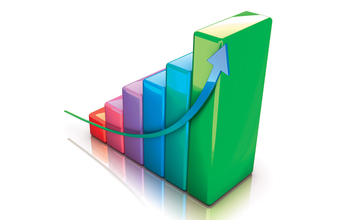
After returning to expansion territory in August, manufacturing sector growth gathered momentum in September. The PMI reached its highest mark since January 2012, supported by accelerated increases in new orders and production. Concurrently, there were renewed expansions in export sales and input stocks as well as an improvement in business confidence. Output prices rose for the first time in six months, reflecting an uptick in input costs.
The headline seasonally adjusted IHS Markit India Manufacturing Purchasing Managers' Index® (PMI®) increased from 52.0 in August to 56.8 in September, signalling back-to-back improvements in the health of the sector. Moreover, the latest reading was the highest in over eight-and-a-half years.
Amid reports of loosened coronavirus disease 2019 (COVID19) restrictions and higher demand, Indian manufacturers lifted output for the second straight month in September. The increase was sharp and the third-quickest in the history of the survey.
Similarly, there were back-to-back increases in new business inflows. The rate of expansion picked up to the fastest since early-2012. The upturn in total sales was supported by a renewed expansion in new export orders, the first since prior to the escalation of the COVID-19 outbreak.
Despite strong growth of order book volumes, Indian goods producers signalled another reduction in payroll numbers. In many cases, this was attributed to efforts to observe social distancing guidelines. Employment has now decreased for six consecutive months.
As a result of lower headcounts and rising sales, companies noted a further increase in their backlogs of work. The rate of accumulation was marked, despite softening from August's recent high.
Manufacturers stepped up purchasing activity in line with greater production needs. Furthermore, the increase in input buying was the strongest in over eight-and-a-half years. This placed additional pressure on supply chains as evident by a further increase in delivery times. Monitored companies mentioned labour and material shortages at their distributors. Vendor performance, however, worsened to the least extent since March.
As for stocks, there were contrasting trends. Holdings of inputs increased for the first time in six months, albeit slightly. At the same time, inventories of finished goods decreased at a sharp and accelerated rate as companies utilised stocks to follow through on their sales contracts.
Commenting on the latest survey results, Pollyanna De Lima, Economics Associate Director at IHS Markit, said: "The Indian manufacturing industry continued to move in the right direction, with PMI data for September highlighting many positives. Due to loosened COVID-19 restrictions, factories went full steam ahead for production, supported by a surge in new work. "Exports also bounced back, following six successive months of contraction, while inputs were purchased at a sharper rate and business confidence strengthened. "One area that lagged behind, however, was employment. Some companies reported difficulties in hiring workers, while others suggested that staff numbers had been kept to a minimum amid efforts to observe social distancing guidelines.
"When we look at the PMI average for the second quarter of fiscal year 2020/21, the result is in stark contrast to that seen in the first quarter: a rise from 35.1 to 51.6. While uncertainty about the COVID-19 pandemic remains, producers can at least for now enjoy the recovery."
On the price front, there was a softer and historically weak rise in input costs. Firms reported higher prices paid for a few materials such as aluminium and steel. Output charges, meanwhile, broadly stabilised following five successive months of reduction.
Almost one-third of manufacturers expect output growth in the coming 12 months, against 8% that foresee a contraction, resulting in the strongest degree of overall optimism in over four years. Upbeat projections reflected hopes of fewer coronavirus cases, projects in the pipeline and enquiries from new clients.
END
Sources: IHS Markit, CSO
